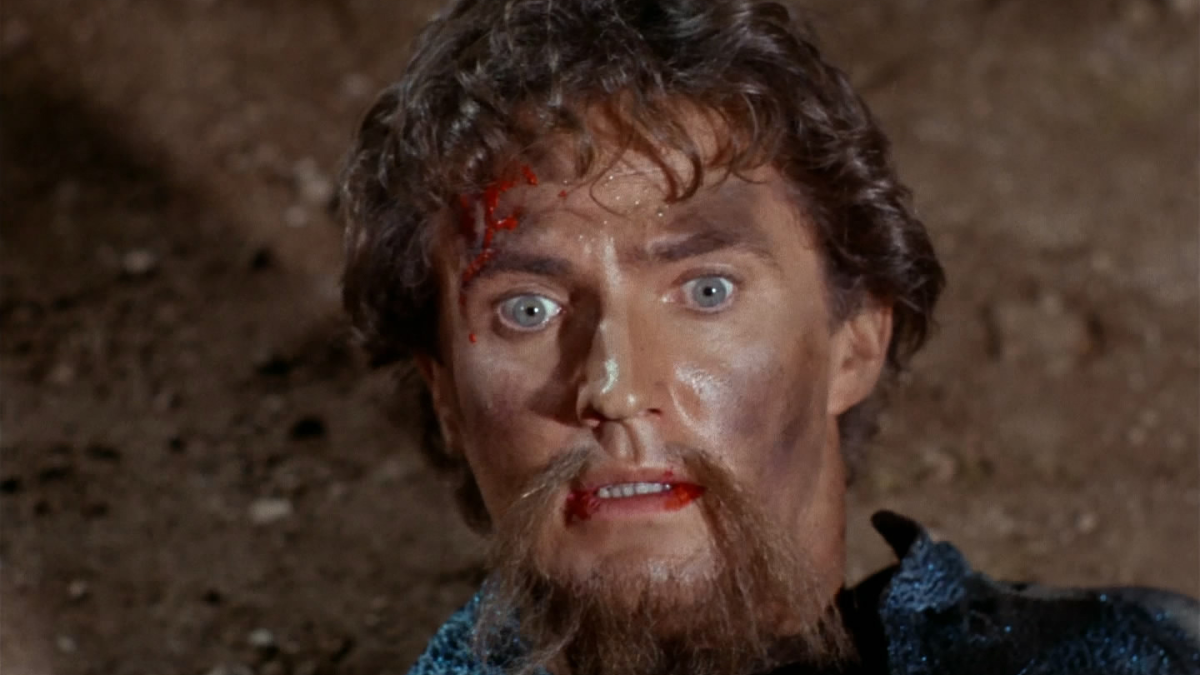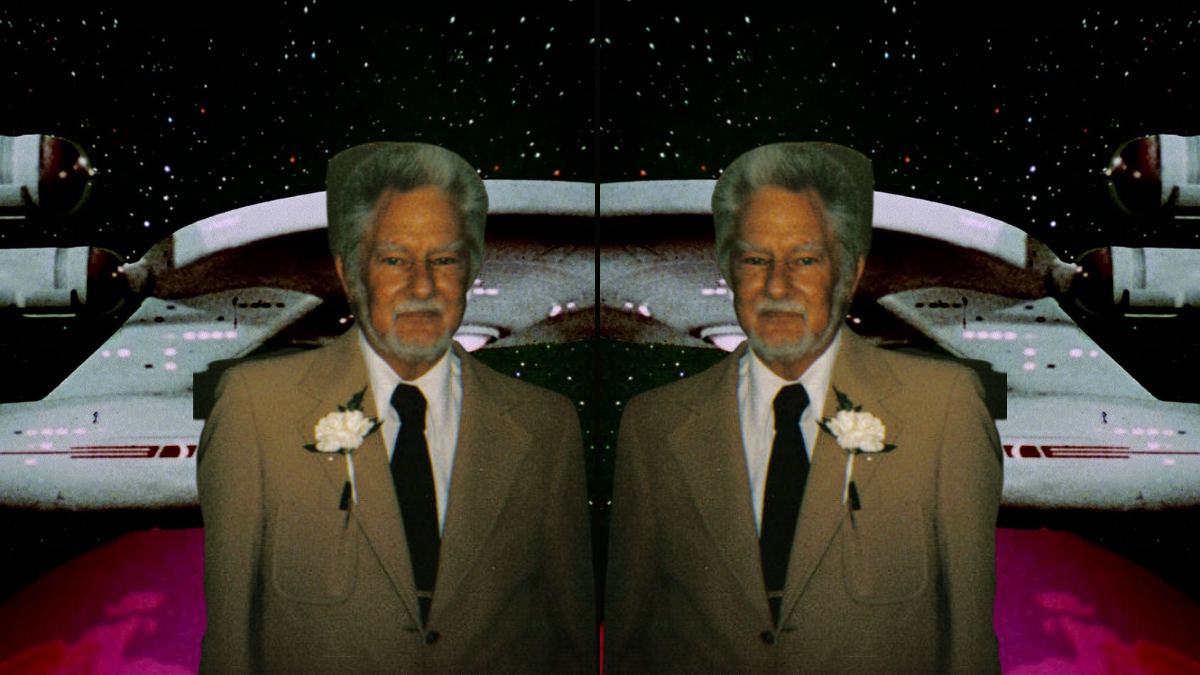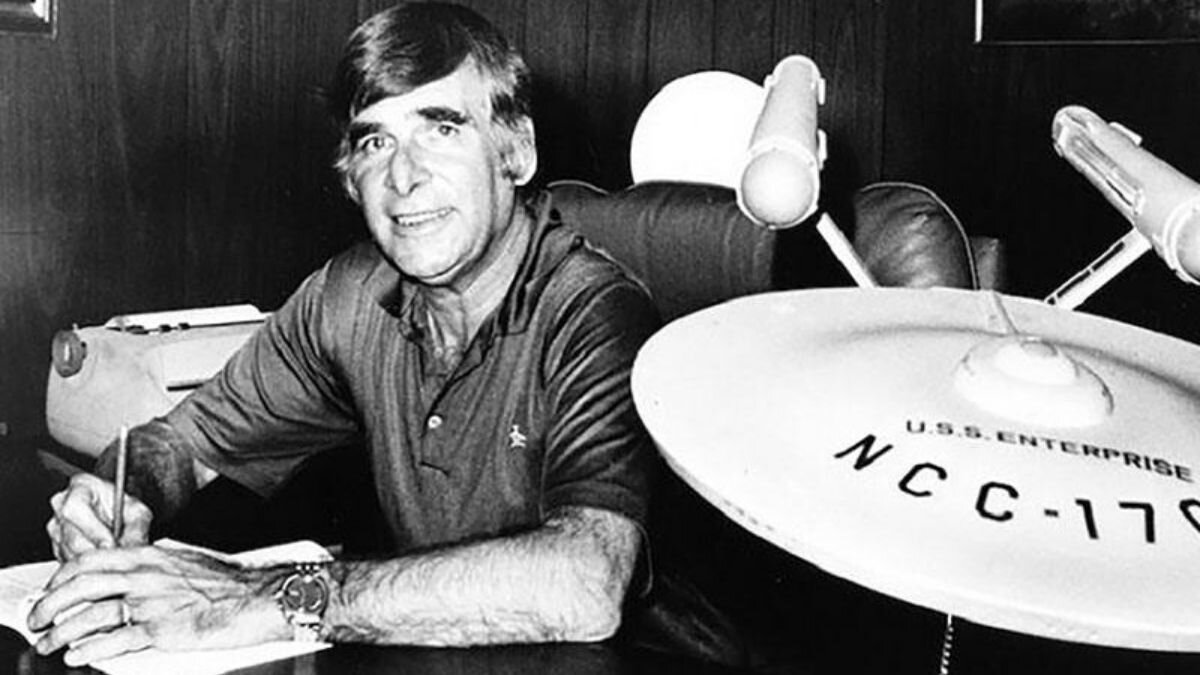TODAY IN STAR TREK HISTORY: The Role of Lazarus in "The Alternative Factor" is Recast

Robert Brown as Lazarus in STAR TREK's "The Alternative Factor". Image: Paramount.
NOVEMBER 16, 2O22 - Star Trek episodes have their backstories, and not just the ones that all the great tie-in writers supply on the fiction side. The real-world production side has its share of drama as well. Today in Star Trek history we take a look at one of those stories, this one about what did not happen.
On November 16, 1966, filming began on the Star Trek: The Original Series’ first season episode, “The Alternative Factor.” While we are, of course, used to seeing Robert Brown as Lazarus, he was not the actor originally cast to play the part. Earlier while the search was on for an actor to successfully portray a one-off character who is still the focus of the story, Gene Roddenberry suggested John Drew Barrymore. An early version of the script was sent to Barrymore, who agreed to do the role.
Prior to signing on to Star Trek, John Drew Barrymore, the son of John Barrymore and father of Drew Barrymore, had previously achieved top billing in a number of films and landed choice guest star roles on television, though his acting career would only last another ten years after Star Trek. Except Star Trek didn’t happen.
On this first day of filming “The Alternative Factor,” Barrymore decided he didn’t want the gig after all. According to Marc Cushman, quoting a memo from casting director Joe D’Agosta to producer Herb Solow, “Between 4 and 5 p.m. [Barrymore] sent word that he did not want to do the role and refused to accept a work call for filming the following morning, November 17. With the cooperation of his agent and lawyer, I told him that he was committed and had to report to work. Mr. Barrymore then became unavailable and out of reach. His reasons were that the script changes had altered his character.”
Despite the need to focus on what Herb Solow describes as “more serious problems,” he insisted on holding Barrymore accountable. As he tells the story in Inside Star Trek, Desilu filed a complaint with the Screen Actors Guild, which then authorized the filing of charges against Barrymore, resulting in the convening of a Trial Board. The Trial Board then suspended Barrymore’s membership for six months, which prevented him from working as an actor during that time. Meanwhile, director Gerd Oswald and the casting staff had to replace Barrymore.
Robert Brown had worked with William Shatner on an unsold TV pilot, and the two had worked well together, according to Brown in an interview with Marc Cushman. Shatner sent Gene Roddenberry Brown’s number, and Roddenberry convinced Brown to do the role, even though Brown had not seen a script and was not familiar with Star Trek or the genre. Roddenberry even offered to secretly pay Brown more than Shatner was getting paid. Production was now a day behind, and the remainder of the shooting schedule was a harrowing experience for Brown. He says, “I was under the gun while shooting that. But it turned out that the public liked me in that show. I’m getting fan mail to this day.”
Sadly, we must also note that Robert Brown died at the age of 95 on September 19th, according to an October 3rd obituary in The Hollywood Reporter. Prior to stepping into the role of Lazarus, Brown had appeared on the big screen in The Flame Barrier and Tower of London, and he had guest starred on a number of television shows, including Wagon Train, Bonanza, and Perry Mason. He would go on to star in Here Come the Brides and make other television appearances, his last occurring in 1994.
Our belated condolences go out to the friends and family of Robert Adair MacKenzie Brown.
Stay tuned for the next “Today in Star Trek History” in two weeks.
David is a contributing writer for Daily Star Trek News on the Roddenberry Podcast Network. He is a librarian, baseball fan, and book and movie buff. He has also written for American Libraries and Skeptical Inquirer. David also enjoys diverse music, but leans toward classical and jazz. He plays a mean radio.





